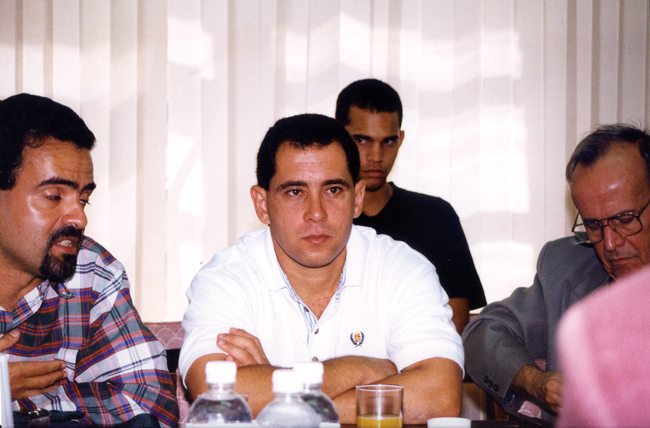The many and varied reactions — both positive and negative — to the death of Fidel Castro rekindle memories of a trip I made to Cuba in 2000 with the Illinois Council of Churches, so it was legal then. Representatives of that group were bringing medical supplies to the Cuban people, who were suffering not only from the embargo imposed by the United States but also from a fuel shortage that forced horses out of fields or retirement and back into the streets. Bicycles, always popular transportation, became more prevalent. Picturesque to one person, must have been frustrating to others, including the “pedalers.”
People spoke highly of Fidel and not so positively about their neighbors to the north. Visiting the schools gave us a good dose of propaganda — “Viva Fidel” — and their songs reiterated the message. While we were not on a political trip to lobby for one way of thinking or another, some of the Cubans didn’t see us in an altogether positive light. Added to our “yankee” baggage was the Elián González custody battle between the boy’s relatives in Miami and his father in Cuba. Now 22, the young man returned to the public eye to praise Castro, who made the boy’s return a cause celébrè in the island nation, and an opportunity to bash the United States via Fidel’s lengthy speeches carried by the Cuban media.
These days of mourning or celebration give us a chance to reflect on the impact Castro has had on so many who call this country home and others who want to reconnect with relatives to the south. The Cuban people, just like the Americans, love their families and want what it best for them. They want to earn enough money to feed their families, to secure a good education for their children and find a safe place to live, to work and to grow old. How is that any different from what we want?
Sixteen years ago, the Cuban people seemed more isolated than they do today. And we weren’t there long enough to make any real assessments of their situation except to note they didn’t have access to the medicines the Illinois Conference of Churches brought to them. We did see their real appreciation of the help that was offered.
When I met and spoke with Elián’s father, all he wanted was his son to be returned to him. This was not a man using an opportunity to garner publicity but a young boy’s dad who longed to put his arms around his child. Eventually, that’s what happened, and Castro used it as a very public reunion.
However, it was the love of a father for his child that drew me to support the father, not the Cuban citizen, not Fidel Castro, but just a dad. We could probably accomplish more on the political stage if we saw people as moms and dads, aunts, uncles or cousins. Many of the undocumented, the refugees, the incarcerated, the people who have no homes, no incomes and sometimes no hope, need to be viewed as members of our families as we work to make life just a little better for them and, in the process, ourselves as well.







